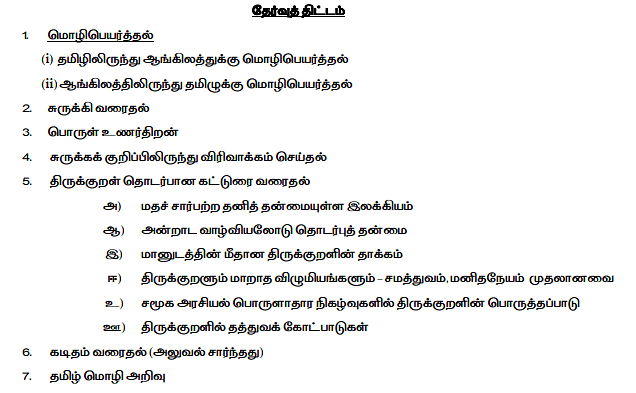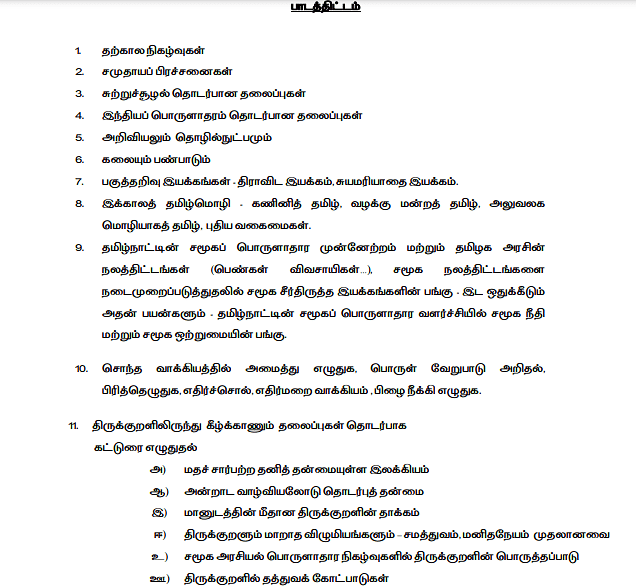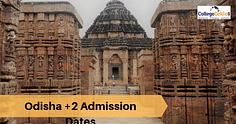TNPSC Group 1 Syllabus 2022 has been released on the official website for both Prelims and Mains examination. Students can check out the subject wise TNPSC group 1 syllabus details below.

TNPSC Group 1 Syllabus 2022 for prelims and mains examination has been released on the official along with official notification. Based on TNPSC Group 1 Syllabus 2022, for prelims candidates will have to prepare for a total of 10 units. On the other hand, the syllabus for mains examination has been released separately for 5 papers. Therefore, students are advised to strictly follow the TNPSC Group 1 Syllabus 2022 released by the board in order to score high marks. The TNPSC Group 1 Examination will consist of questions from various subjects such as General Knowledge, Aptitude and Mental Ability, etc. This article has coverd the detailed syllabus released for TNPSC Group 1 Examination 2022. Students can also click on the link provided to download the syllabus PDF for each of the subjects.
TNPSC Group 1 Syllabus PDFs 2022
Students can download the TNPSC Group 1 Syllabus PDF added below.
| Click Here TNPSC Group 1 Syllabus PDF for Prelims and Mains - |
|---|
TNPSC Group 1 Syllabus 2022 - For Prelims
Units | Name of the Subject | Topics |
|---|---|---|
Unit 1 | General Science |
|
Unit 2 | Current Events |
|
Unit 3 | Geography of India |
|
Unit 4 | History & Culture of India |
|
Unit 5 | Indian Polity |
|
Unit 6 | Indian Economy |
|
Unit 7 | Indian National Movement |
|
Unit 8 | History, Culture, Heritage and Socio-Political Movements in Tamil Nadu |
|
Unit 9 | Tamil Nadu Development Administration |
|
Unit 10 | Aptitude & Mental Ability |
|
TNPSC Group 1 Syllabus 2022 - For Mains
- PAPER - I கட்டாயத் தமிழ் ம ாழித் தகுதித் ததர்வு (பத்தாம் வகுப்புத் தரம்)
-
PAPER - II (Degree Standard)
- UNIT- I : Modern history of India and Indian culture
- UNIT- II : Social issues in India and Tamil Nadu
- UNIT- III : General Aptitude & Mental Ability (SSLC Standard)
-
PAPER - III (Degree Standard)
- UNIT- I : Indian Polity and emerging political trends across the world affecting India
- UNIT- II : Role and impact of Science and Technology in the development of India
- UNIT- III : Tamil Society ‐ Its Culture and Heritage
-
PAPER - IV (Degree Standard)
- UNIT- I : Geography of India with special reference to Tamil Nadu
- UNIT- II : Environment, Bio Diversity and Disaster Management
- UNIT- III : Indian Economy - Current economic trends and impact of global economy on India
TNPSC Group 1 Syllabus for Paper I


TNPSC Group 1 Syllabus for Paper II - General Studies
Units | Name of Subject | Topics |
|---|---|---|
Unit 1 | Modern History of India and Indian Culture |
|
Unit 2 | Social Issues in Tamil Nadu and India |
|
Unit 3 | General Aptitude & Mental Ability |
|
TNPSC Group 1 Syllabus for Paper III- General Studies
Units | Name of Subject | Topics |
|---|---|---|
Unit 1 | Indian Polity and emerging political trends |
|
Unit 2 | Role and Impact of Science & Technology for Indian Development |
|
Unit 3 | Tamil Society, Culture & Heritage |
|
TNPSC Group 1 Syllabus for Paper IV - General Studies
Units | Name of Subject | Topics |
|---|---|---|
Unit 1 | Indian Geography with Reference to Tamil Nadu |
|
Unit 2 | Biodiversity, Environment & Disaster Management |
|
Unit 3 | Indian Economy |
|
Students are advised to refer to the updated syllabus added above based on the official notification released by the board.
















Similar Articles
SAMS Odisha +2 Admissions 2025: Application Form, Selection Process, Merit List, Top Colleges
How to Score 90 Percent in Class 12? - Preparation Tips to Score 90% in 12th
How to Score 90 Percent in Class 10? - Subject-Wise Preparation Tips to Score 90%
Police Ranks in India: Check Rank List PDF, Police Posts with Badges, Stars & Salary
Top 10 North Campus Colleges in Delhi University (DU): NIRF Ranking & Popular Courses
REET 2025: Notification, Application Form, Exam Date and More